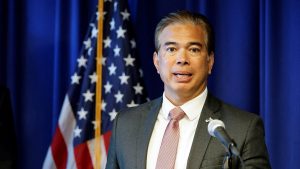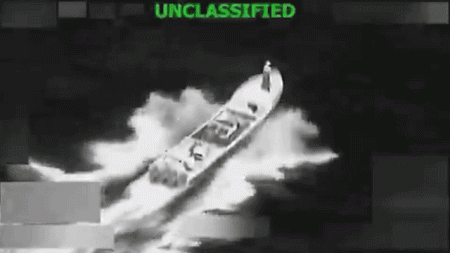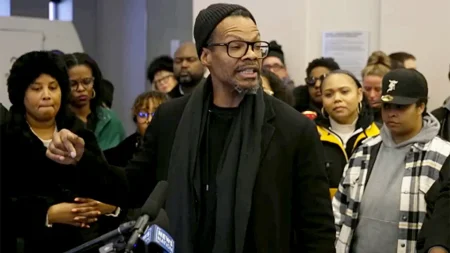Military Ethics Under Scrutiny: Israeli Military’s Chief Legal Officer Resignation Rocks National Defense Establishment
Resignation Shakes Military Justice System Amid Controversial Detainee Case
In an unprecedented development that has sent shockwaves through Israel’s defense establishment, the chief legal officer of the Israel Defense Forces (IDF) has resigned following revelations that he authorized the leak of sensitive video footage documenting the alleged abuse of a Palestinian detainee. The resignation comes at a critical juncture for the military’s legal apparatus, which has found itself increasingly caught between operational imperatives and international humanitarian law standards. This high-profile departure has not only exposed deep fractures within the military justice system but has also intensified the already contentious public discourse surrounding detention practices and accountability in conflict zones.
The controversy centers on footage that reportedly shows IDF personnel subjecting a Palestinian detainee to treatment that human rights organizations have characterized as “grave abuse.” Military officials familiar with the case, speaking on condition of anonymity due to the sensitive nature of the matter, described the footage as “deeply troubling” and acknowledged it raised serious questions about adherence to detention protocols. The chief legal officer, whose role traditionally involves providing legal counsel to military leadership and ensuring operations comply with domestic and international law, reportedly made the unilateral decision to authorize the release of this footage to selected media outlets. This extraordinary breach of standard classification procedures was allegedly motivated by concerns that the full context of the incident was being misrepresented in public discourse.
The resignation has unleashed a fierce debate about transparency, accountability, and the proper handling of sensitive information within military structures. Defense analysts point out that this case highlights the delicate balance military legal advisors must maintain between protecting operational security and upholding principles of justice. “Military legal officers serve in a uniquely challenging position,” explained Dr. Sarah Levinson, a specialist in military ethics at Tel Aviv University. “They must simultaneously protect the legitimacy of military actions while ensuring those actions remain within legal boundaries. When evidence of potential violations emerges, these dual responsibilities can come into direct conflict.” The unauthorized disclosure of classified material represents a significant breach of military protocol, regardless of the motivations behind it, and military leadership has emphasized that such actions undermine the integrity of internal investigative processes.
Political Fallout Intensifies as Case Becomes Lightning Rod for Broader Tensions
What began as an internal military disciplinary matter has rapidly evolved into a highly charged political controversy with ramifications extending far beyond the specific incident. The leaked footage has become a powerful symbol in competing narratives about security operations in occupied territories, with government officials, opposition leaders, and civil society organizations advancing sharply divergent interpretations of its significance. Right-wing political figures have condemned the resignation as evidence of “activist interference” in security operations, while centrist and left-leaning politicians have characterized it as a necessary accountability measure in the face of alleged human rights violations. This polarization reflects deeper tensions in Israeli society regarding military conduct and the ethical dimensions of ongoing security challenges.
The timing of this controversy has proven particularly sensitive, coinciding with increased international scrutiny of detention practices and heightened diplomatic engagement around regional security concerns. Human rights organizations have seized upon the case as evidence supporting their longstanding calls for greater transparency and accountability in military detention operations. “This case demonstrates precisely why independent oversight is essential,” stated Michael Bernstein, regional director for International Monitors, a human rights documentation organization. “When systems designed to prevent abuses fail, transparency becomes the last line of defense.” Meanwhile, government officials have expressed concern that the politicization of the case risks undermining morale within security forces and complicating delicate security operations. Defense Minister Avi Cohen emphasized in a statement that “while accountability is non-negotiable, we must ensure that legitimate security operations are not compromised by political opportunism.”
The controversy has sparked renewed debate about the appropriate balance between operational security and public transparency in democratic societies facing security challenges. Legal experts note that democracies worldwide struggle with similar tensions between security imperatives and principles of openness and accountability. Professor Daniel Rothman, who specializes in comparative military justice systems at Hebrew University, observed that “democratic societies must maintain public confidence in security institutions while preserving necessary operational secrecy. When these imperatives clash, as in this case, institutions can experience profound crises of legitimacy.” The case has prompted calls for comprehensive review of protocols governing the handling of evidence in military investigations, with particular attention to clarifying the circumstances under which classification may be overridden in the public interest.
Institutional Implications: Military Justice System Faces Reform Pressure
The resignation has triggered what military analysts describe as a “crisis of confidence” in the IDF’s internal accountability mechanisms, prompting urgent discussions about potential reforms to the military justice system. Senior defense officials have acknowledged the need for a comprehensive review of how allegations of misconduct are investigated and adjudicated within military structures. “This incident reveals structural weaknesses in our investigative protocols that must be addressed,” admitted a senior military official speaking on background. “We need to ensure that our systems for accountability function properly without compromising security or becoming vehicles for political agendas.” The military has announced the formation of an independent commission to evaluate current practices and recommend reforms designed to strengthen both accountability and appropriate confidentiality.
The fallout extends beyond the immediate case to questions about the independence and authority of military legal advisors within command structures. Military legal experts note that the incident highlights ambiguities in the chain of command for legal officers, who must balance their obligations to military leadership against their professional duty to uphold legal standards. “Military lawyers occupy an inherently difficult position,” explained Colonel (Ret.) Yael Shomron, former military prosecutor. “They must provide counsel that may sometimes be unwelcome to operational commanders, while remaining integrated within the command structure. This case demonstrates how precarious that balance can become.” The resignation has prompted calls for clearer guidelines delineating the authority and independence of legal advisors within military structures, particularly regarding decisions about transparency and disclosure of potential violations.
The controversy has catalyzed broader examination of detention practices in conflict zones and the mechanisms for preventing abuse. Security experts acknowledge that detention operations present particularly acute ethical and legal challenges, especially in environments characterized by asymmetric conflict and heightened security threats. “Detention operations inherently involve vulnerabilities for both detainees and security personnel,” noted Dr. Amos Gilad, former director of policy at the Defense Ministry. “Effective safeguards must protect human dignity while enabling necessary security functions.” The case has renewed focus on training protocols for personnel involved in detention operations and the implementation of robust supervision mechanisms designed to prevent misconduct before it occurs.
International Dimensions: Global Scrutiny Intensifies Amid Human Rights Concerns
The case has attracted significant international attention, contributing to already intense scrutiny of military practices in conflict zones worldwide. Diplomatic observers note that allegations of detainee abuse resonate particularly strongly in the current global context, where standards for military conduct face evolving interpretations. Ambassador Richard Hartman, former special envoy for humanitarian affairs, observed that “military detention practices have become a focal point in international humanitarian discourse, with incidents like this one often framing broader perceptions about adherence to international law.” The resignation and surrounding controversy have provided fodder for international critics while placing additional pressure on diplomatic representatives to address concerns about detention protocols.
Human rights organizations have incorporated the case into their broader advocacy regarding detention standards and accountability mechanisms. “This incident represents precisely the type of case that demonstrates why robust, independent monitoring of detention facilities is essential,” argued Elena Mateos, legal advisor for the International Commission on Detention Standards. “When evidence of abuse emerges only through extraordinary measures like unauthorized disclosures, it indicates fundamental weaknesses in oversight systems.” International legal experts have emphasized that while the specific circumstances of this case are unique to the Israeli context, the underlying tensions between security imperatives and detainee protections represent a universal challenge in conflict environments worldwide.
The international legal implications extend to questions about command responsibility and institutional accountability for individual misconduct. Military justice scholars note that modern interpretations of international humanitarian law increasingly emphasize the responsibility of military institutions to prevent violations through effective training, clear guidelines, and functional accountability systems. “The focus has shifted from exclusive attention on individual perpetrators to examining whether institutions have fulfilled their obligation to prevent abuse,” explained Professor Jonathan Wells, specialist in international humanitarian law. “This case raises important questions about whether systemic factors contributed to the alleged misconduct and whether existing accountability mechanisms are adequate.” These considerations frame not only the specific case but broader evaluations of military justice systems operating in complex conflict environments.
Path Forward: Rebuilding Trust While Addressing Systemic Challenges
As the defense establishment works to manage the immediate fallout from this resignation, attention is turning to the longer-term implications for military governance and accountability systems. Military leadership has emphasized the need to restore public confidence while preserving essential operational capabilities. “Our effectiveness depends on maintaining both operational integrity and public trust,” stated IDF Chief of Staff in a rare public statement addressing the controversy. “We cannot sacrifice either without compromising our fundamental mission.” Defense officials have announced plans for a comprehensive review of protocols governing military investigations, with particular attention to clarifying the circumstances under which classified information related to potential misconduct may be shared with oversight bodies or the public.
The case has catalyzed renewed discussion about civilian oversight of military operations and the appropriate role of external accountability mechanisms. Legal scholars and security analysts continue to debate the proper balance between military self-governance and external review, particularly in cases involving potential human rights violations. “Democratic societies require military institutions that are both effective in providing security and accountable to civilian oversight,” noted Professor Shira Cohen, expert in civil-military relations. “This case demonstrates the tension inherent in that dual requirement.” Reform proposals include strengthened internal whistleblower protections, enhanced powers for civilian review bodies, and more transparent reporting mechanisms for alleged violations, all designed to prevent situations where unauthorized disclosures seem necessary to ensure accountability.
As this case continues to unfold, it serves as a powerful reminder of the complex ethical terrain navigated by modern military institutions operating in politically charged environments. The challenge moving forward will be to develop systems that maintain necessary operational security while ensuring genuine accountability and adherence to legal and ethical standards. The resignation of the chief legal officer represents not just an individual career casualty but a significant moment of institutional reckoning that may ultimately strengthen both legitimacy and effectiveness if the resulting reforms address the underlying tensions that produced this extraordinary breach of protocol. The path to rebuilding trust will require transparent processes, meaningful reforms, and a renewed commitment to upholding both security imperatives and the rule of law.










